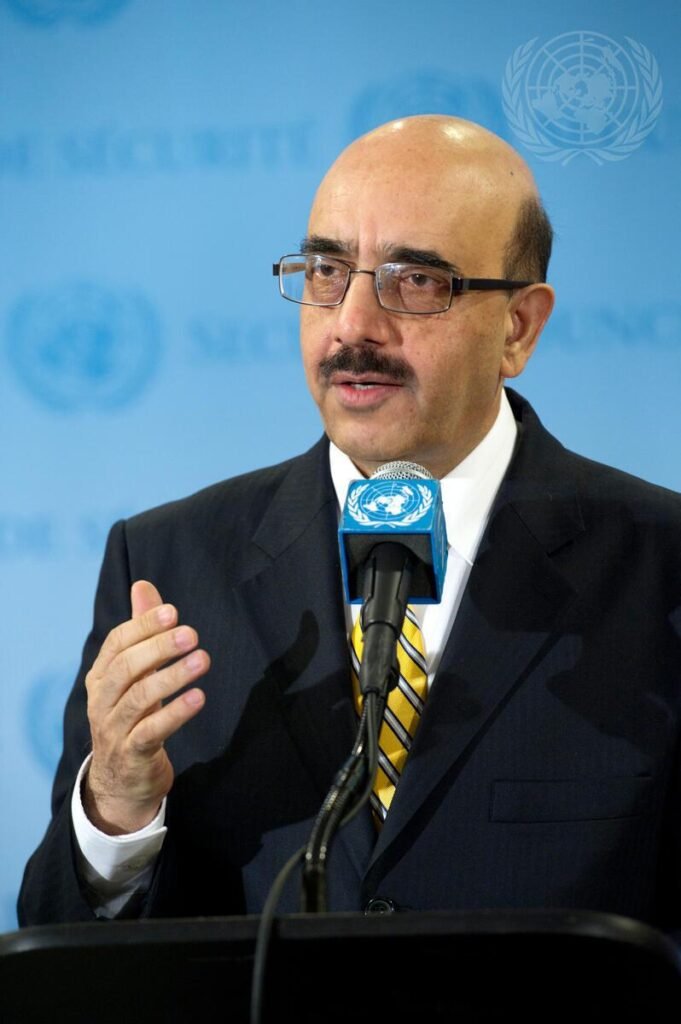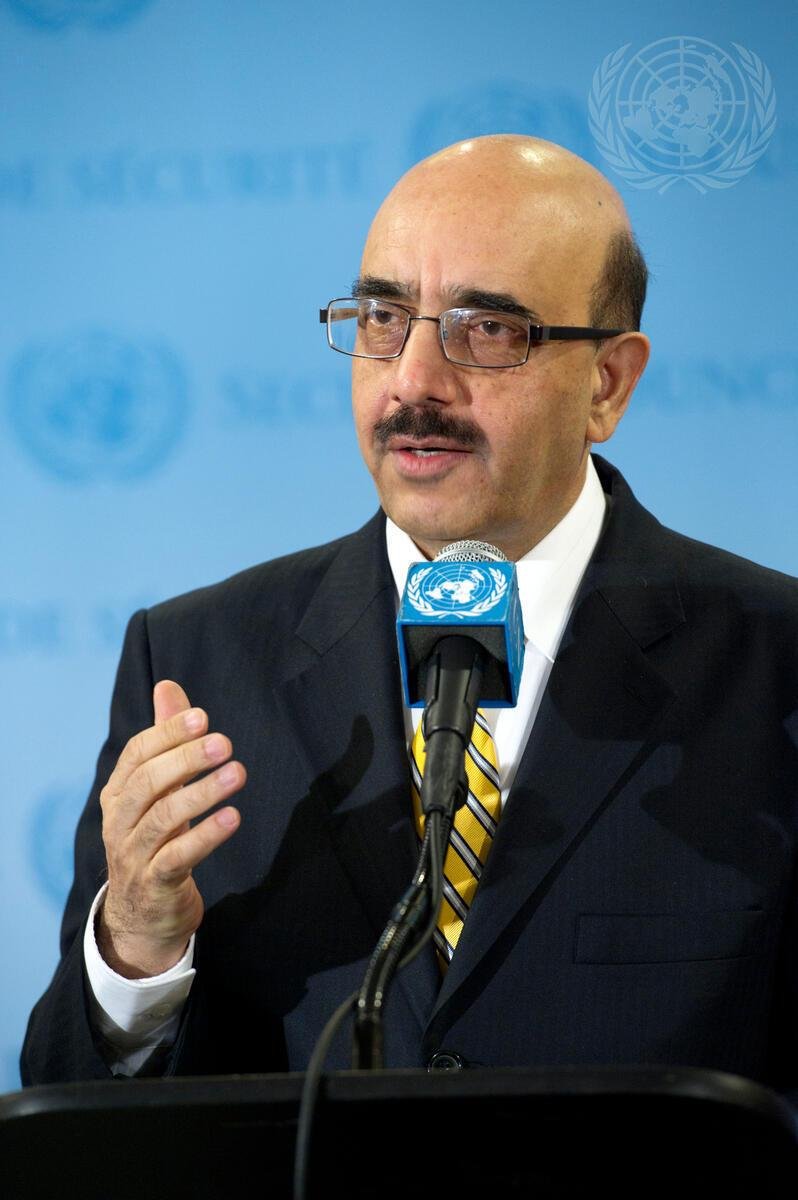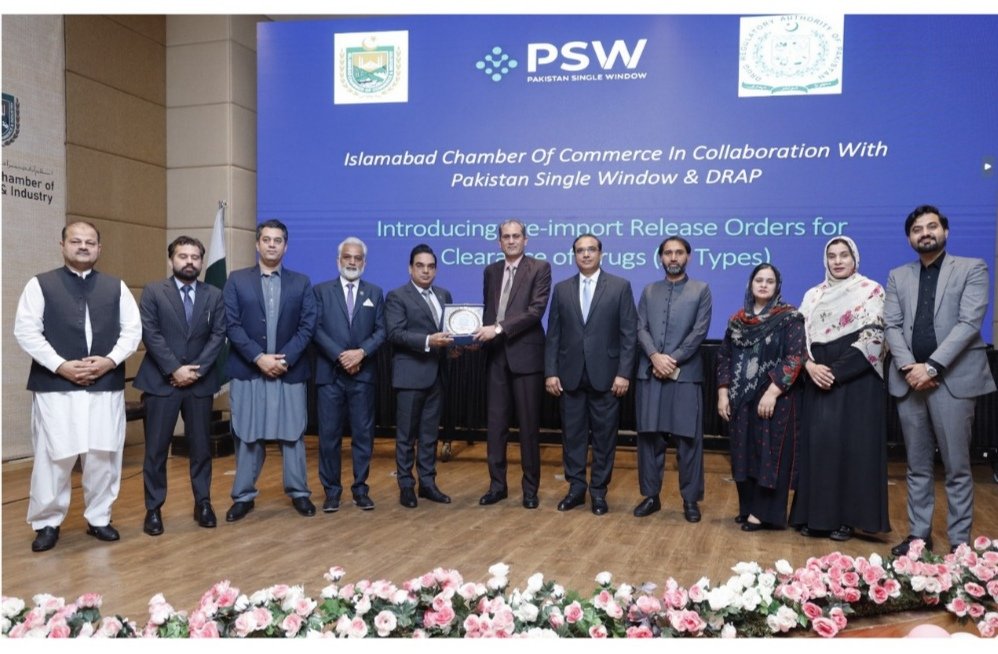
Urges national cohesion and strategic clarity amid rising cross-border threats
Islamabad, Sardar Masood Khan, Pakistan’s former Ambassador to the United States, China, and the United Nations, and former President of Azad Jammu and Kashmir, called for strengthening national unity and strategic clarity amid escalating cross-border terrorism and evolving regional dynamics.
Speaking to national media on Pakistan’s internal cohesion and external security challenges, Ambassador Khan emphasized that “Pakistan has successfully fought terrorism for decades, but new threats have emerged from across our western border, supported by a nexus between hostile intelligence networks and extremist groups.” He stressed the importance of a unified national narrative to counter these challenges, noting that “our security forces continue to fight valiantly on the frontlines — what is needed now is strong resolve and cohesion within.”
Ambassador Khan highlighted that after the war on terror, Pakistan became the principal target of cross-border terrorism launched from Afghan soil. “Despite assurances by the Afghan Taliban in the Doha Agreement that Afghan territory would not be used for terrorism, the surge in attacks on Pakistan proves otherwise,” he stated. He underscored that recent evidence shows direct or indirect support for these attacks from elements within Afghanistan, aided by India’s intelligence apparatus.
Addressing the broader strategic context, Ambassador Khan rejected the notion that Pakistan was isolated internationally. “Pakistan is diplomatically re-engaged and respected across global capitals — from Washington and New York to Beijing, Riyadh, and Central Asia. India’s efforts to isolate Pakistan have failed. On the contrary, Pakistan’s credibility and diplomatic footprint have expanded,” he asserted.
He noted that India’s collusion with extremist groups through Afghan proxies aims to destabilize Pakistan internally. “India has turned Afghanistan into a proxy battleground. This hybrid strategy — combining conventional pressure on the eastern front and asymmetric attacks from the west — is designed to stretch Pakistan’s security architecture. But our resolve is intact; our deterrence credible,” he said.
Outlining Pakistan’s policy options, Ambassador Khan suggested a multi-tiered approach. “First, Pakistan must persist with bilateral engagement with the Afghan government while holding it accountable under international guarantees. Second, third-party mediation through partners such as China, Iran, Saudi Arabia and especially Qatar can support de-escalation. Third, Pakistan must remain militarily prepared to respond decisively to any violation of its sovereignty,” he emphasized.
Commenting on factionalism within the Taliban, Ambassador Khan observed that “the Kandahar faction currently dominates and drives anti-Pakistan policies. Any meaningful dialogue must involve this group, as pro-Pakistan elements have been marginalized.” He added that India’s penetration into the Afghan power structure had emboldened anti-Pakistan factions, further complicating peace efforts.
He warned that while Pakistan continues to exercise restraint, “repeated provocations will compel a calibrated military response. The policy is clear — any attack on Pakistani soil will be met with proportional retaliation. This is the new normal.”
Ambassador Khan also cautioned against underestimating India’s adventurism. “India, still reeling from its humiliation in the May 2025 conflict, is likely to attempt another misadventure to redeem its domestic image. It continues to use Afghan territory as a staging ground for hybrid operations. Pakistan must remain vigilant across both borders,” he said.
Concluding his remarks, Ambassador Masood Khan reaffirmed Pakistan’s commitment to peace, stability, and constructive regional engagement. “Our goal is not escalation but deterrence. Pakistan will continue to pursue diplomacy from a position of strength while ensuring that no external power — state or non-state — can threaten our sovereignty or national unity. The message is clear: Pakistan stands united, resolute, and ready.”
Islamabad, Oct 20
Sardar Masood Khan, Pakistan’s former Ambassador to the United States, China, and the United Nations, and former President of Azad Jammu and Kashmir, called for strengthening national unity and strategic clarity amid escalating cross-border terrorism and evolving regional dynamics.
Speaking to national media on Pakistan’s internal cohesion and external security challenges, Ambassador Khan emphasized that “Pakistan has successfully fought terrorism for decades, but new threats have emerged from across our western border, supported by a nexus between hostile intelligence networks and extremist groups.” He stressed the importance of a unified national narrative to counter these challenges, noting that “our security forces continue to fight valiantly on the frontlines — what is needed now is strong resolve and cohesion within.”
Ambassador Khan highlighted that after the war on terror, Pakistan became the principal target of cross-border terrorism launched from Afghan soil. “Despite assurances by the Afghan Taliban in the Doha Agreement that Afghan territory would not be used for terrorism, the surge in attacks on Pakistan proves otherwise,” he stated. He underscored that recent evidence shows direct or indirect support for these attacks from elements within Afghanistan, aided by India’s intelligence apparatus.
Addressing the broader strategic context, Ambassador Khan rejected the notion that Pakistan was isolated internationally. “Pakistan is diplomatically re-engaged and respected across global capitals — from Washington and New York to Beijing, Riyadh, and Central Asia. India’s efforts to isolate Pakistan have failed. On the contrary, Pakistan’s credibility and diplomatic footprint have expanded,” he asserted.
He noted that India’s collusion with extremist groups through Afghan proxies aims to destabilize Pakistan internally. “India has turned Afghanistan into a proxy battleground. This hybrid strategy — combining conventional pressure on the eastern front and asymmetric attacks from the west — is designed to stretch Pakistan’s security architecture. But our resolve is intact; our deterrence credible,” he said.
Outlining Pakistan’s policy options, Ambassador Khan suggested a multi-tiered approach. “First, Pakistan must persist with bilateral engagement with the Afghan government while holding it accountable under international guarantees. Second, third-party mediation through partners such as China, Iran, Saudi Arabia and especially Qatar can support de-escalation. Third, Pakistan must remain militarily prepared to respond decisively to any violation of its sovereignty,” he emphasized.
Commenting on factionalism within the Taliban, Ambassador Khan observed that “the Kandahar faction currently dominates and drives anti-Pakistan policies. Any meaningful dialogue must involve this group, as pro-Pakistan elements have been marginalized.” He added that India’s penetration into the Afghan power structure had emboldened anti-Pakistan factions, further complicating peace efforts.
He warned that while Pakistan continues to exercise restraint, “repeated provocations will compel a calibrated military response. The policy is clear — any attack on Pakistani soil will be met with proportional retaliation. This is the new normal.”
Ambassador Khan also cautioned against underestimating India’s adventurism. “India, still reeling from its humiliation in the May 2025 conflict, is likely to attempt another misadventure to redeem its domestic image. It continues to use Afghan territory as a staging ground for hybrid operations. Pakistan must remain vigilant across both borders,” he said.
Concluding his remarks, Ambassador Masood Khan reaffirmed Pakistan’s commitment to peace, st
Sohail Majeed is a Special Correspondent at The Diplomatic Insight. He has twelve plus years of experience in journalism & reporting. He covers International Affairs, Diplomacy, UN, Sports, Climate Change, Economy, Technology, and Health.






![logo-1[1]](https://globalnewspakistan.com/wp-content/uploads/2025/01/logo-11-e1737618310315-300x187.png)